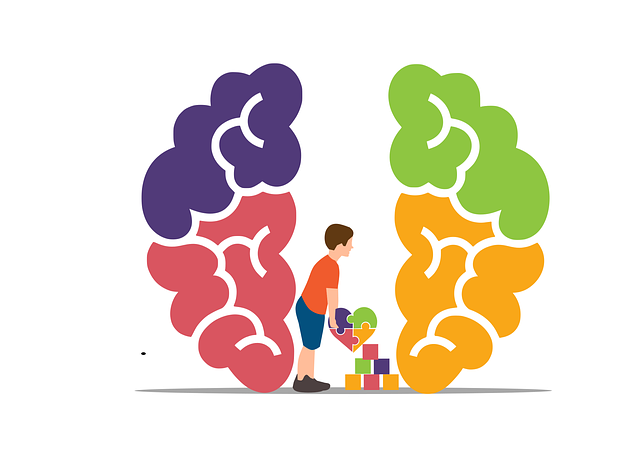Mental health policies play a pivotal role in shaping societal attitudes and access to care, influencing funding, delivery, and regulation of services. Effective policy analysis involves evaluating laws impacting treatment accessibility, affordability, and cultural sensitivity. By integrating evidence-based practices like Self-Esteem Improvement, Resilience Building, and Self-Care, policies can empower individuals to manage their mental health holistically. While progress has been made, access to quality care remains challenging for marginalized communities and those without reliable digital access. Advocacy demands a comprehensive strategy including public education, strategic partnerships, and targeted interventions like Littleton Sexual Dysfunction Therapy. Community-centric programs utilizing accessible platforms and wellness coaching are key. Collaborative efforts between healthcare providers, policymakers, and community organizations promote systemic change, challenge stigma, and foster supportive environments for seeking help, leading to improved public mental wellness outcomes.
Mental health policy is a crucial component of fostering well-being and equitable access to care. This article delves into the intricate world of mental health advocacy, offering a comprehensive analysis of current policies and their impact on diverse populations. By exploring challenges and identifying gaps, we highlight the necessity for change. We present strategic approaches for effective advocacy, emphasizing the role of therapies like Littleton Sexual Dysfunction Therapy in policy reform, ultimately aiming to revolutionize mental healthcare accessibility.
- Understanding Mental Health Policy and its Impact
- Analyzing the Current Landscape: Challenges and Gaps
- Strategies for Effective Advocacy and Change
- The Role of Therapies Like Littleton Sexual Dysfunction Therapy in Policy Reform
Understanding Mental Health Policy and its Impact

Mental health policies play a pivotal role in shaping societal attitudes and access to care for individuals grappling with various mental health conditions, including Littleton Sexual Dysfunction Therapy. These policies impact how services are funded, delivered, and regulated, ultimately affecting the quality of care available to those in need. Understanding the intricate web of regulations and their implications is crucial for advocacy efforts aimed at improving mental healthcare systems.
Effective mental health policy analysis involves scrutinizing laws and guidelines that influence treatment accessibility, affordability, and cultural sensitivity. By focusing on evidence-based practices, such as Self-Esteem Improvement and Resilience Building initiatives, policies can empower individuals to take charge of their mental well-being. Furthermore, integrating Self-Care Practices into these policies ensures a holistic approach, fostering self-reliance and overall community health.
Analyzing the Current Landscape: Challenges and Gaps

The current landscape of mental health policy is complex, with both significant advancements and lingering challenges. Access to quality care remains a pressing issue, particularly for marginalized communities where resources are scarce and stigma persists. Despite efforts to integrate sexual dysfunction therapy, such as Littleton Sexual Dysfunction Therapy, into mainstream healthcare, many individuals still face barriers to receiving specialized treatment.
Furthermore, the global shift towards digital health solutions has not been uniform, leaving behind those without reliable internet access or technological literacy. This digital divide exacerbates existing disparities in mental health services. Additionally, while initiatives like Stress Management Workshops Organization and Depression Prevention programs have gained traction, there’s a need for more comprehensive strategies that address the root causes of mental health issues, including empathy-building techniques to foster understanding and support within communities.
Strategies for Effective Advocacy and Change

Effective advocacy for mental health policy requires a multi-faceted approach that combines public education, strategic partnerships, and targeted interventions like Littleton Sexual Dysfunction Therapy. Mental Health Education Programs Design should be tailored to address specific communities’ needs, utilizing accessible platforms such as schools, workplaces, and community centers. By integrating Mental Wellness Coaching Programs Development, advocates can empower individuals with coping strategies and resources to better manage stress and promote mental wellness proactively.
Collaborations between healthcare providers, policymakers, and community organizations are pivotal for driving systemic change. Leveraging data and research to highlight the impact of mental health issues on society as a whole, while also emphasizing the cost-effectiveness of prevention and early intervention, can be persuasive. Public awareness campaigns that challenge stigma and encourage open dialogue about mental health are essential steps towards creating a more supportive environment for those seeking help, including services like Littleton Sexual Dysfunction Therapy.
The Role of Therapies Like Littleton Sexual Dysfunction Therapy in Policy Reform

The integration of specialized therapies like Littleton Sexual Dysfunction Therapy into mental health policy has been transformative. These therapeutic approaches address specific and often overlooked aspects of mental wellness, such as sexual dysfunction, which can significantly impact an individual’s overall quality of life. By recognizing these issues within the broader spectrum of mental health, policymakers are encouraging more comprehensive care. This shift promotes a holistic view of treatment, ensuring that various components of mental wellness, including self-care practices and burnout prevention, receive adequate attention.
Littleton Sexual Dysfunction Therapy exemplifies how targeted interventions can drive policy reform. It highlights the importance of catering to diverse psychological needs, moving beyond traditional treatments. By incorporating such therapies into policy frameworks, there’s a greater chance of fostering inclusive mental health systems that support individuals in managing and overcoming unique challenges. This, in turn, contributes to improved public mental wellness outcomes.
Mental health policy analysis and advocacy are imperative for creating a more inclusive and supportive society. By understanding the impact of mental health policies, analyzing current challenges, and employing effective strategies, we can drive meaningful change. The integration of therapies like Littleton Sexual Dysfunction Therapy demonstrates the potential for policy reform to address diverse mental health concerns. Through collaborative efforts and persistent advocacy, we can ensure that everyone has access to quality mental healthcare, fostering a more resilient and healthy community.














